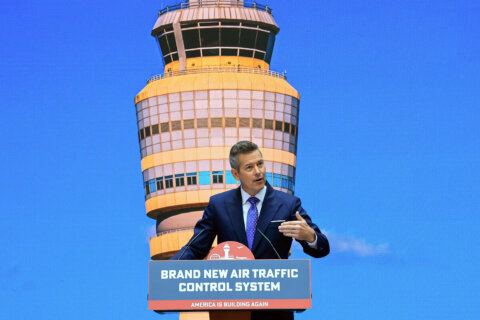WASHINGTON — Scammers are targeting area E-ZPass holders with a phishing scheme that claims drivers owe money on their accounts, warns AAA Mid-Atlantic.
According to AAA, cyber criminals have sent official-looking emails to E-ZPass customers in the D.C. area claiming the drivers are “indebted” for traveling on toll roads. The emails state that the message is a “notice to appear.”
In some cases, the emails contain a color logo that has a similar font to the real E-ZPass logo. The emails may also contain spelling or grammar errors.
The message directs the recipient to clink a link and then provide personal and financial information.
“Everyone must be on guard for these fraudsters attempting to con you out of your hard-earned funds and account information,” cautioned AAA Mid-Atlantic spokesman John Townsend. “Be skeptical of all email that directs the user to a website in which credit card or personal information is entered.”
Simply clicking the link in the bogus email can infect a computer or mobile device with malware.
Anyone who receives such an email should immediately notify the Federal Trade Commission, AAA says.
In Maryland, notices at toll lanes warn drivers if their account balances are low, according to AAA.
However in Virginia, there is no such warning along the 495 and 95 Express Lanes. Drivers have faced thousands of dollars in fines and fees for uncollected tolls along the privately-operated lanes. Drivers have successfully taken the toll-lane operator Transurban to court to fight the claims, as reported by WTOP Ticketbuster.
To check on account balances, Maryland pass-holders can call 1-800-321-6824 or log into their accounts through the Maryland Transportation Authority’s E-ZPass page at EZPassMD.com.
Virginia pass-holders can call 1-877-762-7824 to check account balances, update credit card information or make a payment. Drivers can find more information on the Virginia Department of Transportation’s E-ZPass page EZPassVA.com.
The Federal Trade Commission offers these tips to avoid falling victim to any phishing scam:
- Never click on links in emails from unfamiliar senders.
- Don’t send personal or financial information in an email.
- Check to see if an organization’s site is secure before typing personal information. The URL will include the letters “https.”
- Anyone who receives an email from E-ZPass should call their state’s customer service center to verify whether their account needs replenished.
- Use security software to protect computer files and keep the software up to date.








